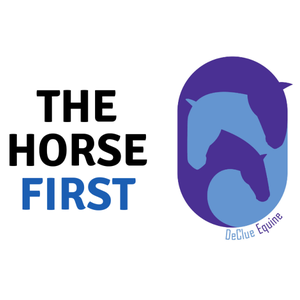
The Horse First: A Veterinary Sport Horse Podcast
Audrey DeClue, DVM
- 50 minutes 49 secondsEpisode 60: Sport Horse Rounds - A New Mindset
Dr. Audrey DeClue and Dr. Kate Workman discuss the need to change mindsets within the institution of equine sports medicine. They also highlight the success of a recent seminar on treating girthiness emphasizing practical, hands-on training. At the core, they stress the need to understand the whole horse - not just limb lameness - to provide the best outcomes. This also requires asking different questions to achieve better diagnoses and treatments.
The conversation underscores the need for a paradigm shift in veterinary education and practice to improve horse welfare and performance.
19 November 2024, 5:37 pm - 1 hour 4 minutesEpisode 59: Sport Horse Rounds - What Lameness Issues Are We All Missing?
Dr. Audrey DeClue and Dr. Kate Workman discuss common lameness issues in sport horses, emphasizing the importance of recognizing body lameness beyond limb issues. They highlight that pain is the most common cause of lameness, with inciting factors including trauma, fatigue, and inflammation, noting that many conditions often go unrecognized.
The conversation underscores the importance of a comprehensive approach to equine lameness, including the role of biomechanics and the need for more veterinary education and research.
16 October 2024, 6:08 pm - 1 hour 11 minutesEpisode 58: Sport Horse Rounds - Body Lameness vs Limb Lameness
Dr. Audrey DeClue, DVM and Dr. Kate Workman, DVM discuss the complexities of body lameness versus limb lameness in equine sports medicine. Dr. DeClue emphasizes the importance of understanding body lameness - a term she coined to describe issues not limited to limbs.
Dr. Workman shares her experience as a performance veterinarian, highlighting the basics of sports medicine and the challenges of diagnosing and treating body lameness. They discuss the interconnectedness of the body, the limitations of current veterinary practices, and the need for proper rehabilitation protocols.
This episode underscores the importance of a whole-horse approach to equine lameness and the role of veterinarians in advancing the field.
23 September 2024, 6:00 pm - 1 hour 2 minutesEpisode 57: Sport Horse Rounds - KISS Theory: Making Complex Lameness Simple
Dr. Audrey DeClue, DVM and Dr. Kate Workman, DVM discuss the complexities of lameness in horses and the importance of simplifying veterinary medicine. Dr. DeClue shares her recent work with the US Army Caisson horses at Arlington National Cemetery, the deplorable conditions and mismanagement of these horses including wasteful spending of taxpayer money. They emphasize the need for veterinarians to understand biomechanics and anatomy to solve complex issues like shivers and stringhalt. Dr. DeClue plans to conduct seminars to teach these principles, starting with girthiness and equipment lameness, followed by iliopsoas injuries. They stress the importance of practical, results-based knowledge and the need for veterinarians to continuously learn and adapt.
You can also watch the podcast here.
11 September 2024, 5:20 pm - 59 minutes 54 secondsEpisode 56: Kissing Spine in Sport Horses, Part 2: Do you ride the Horse or the Radiograph?
In part 2 of this series, Dr. DeClue continues her deep dive into kissing spine, including some eye-opening data regarding its prevalence across the world.
Some highlights in this episode include:
- The prevalence of back diseases in horses. 5:37
- Impingement of the dorsal spine. 10:55
- Kissing Spine Syndrome in thoroughbreds. 14:43
- Kissing spine in horses in Malaysia. 21:45
- Radiographic findings supporting a developmental vs. acquired etiology. 33:05
- The 2023 paper from italy on kissing spine. 42:43
- Are kissing spine lesions painful? 47:16
- Stretching the dorsal spine. 52:43
8 September 2023, 2:19 pm - 40 minutes 7 secondsEpisode 55: Kissing Spine in Sport Horses
Countless hours of research have culminated in today's episode on kissing spine in sport horses. Dr. Audrey DeClue pulls knowledge from decades, centuries, and millennia of data on kissing spine to learn more about this affliction that has impacted dogs, cats, humans, otters, horses, and even dinosaurs.
8 May 2023, 6:18 pm - 28 minutes 55 secondsEpisode 54: Lead Change Problems in Sport Horses
If your horse seems stiff, uneven, and doesn't track straight, you're probably also having issues with lead changes. It's another long-thought mystery issue impacting performance and sometimes leading to anxiety in horses during drills. As always, Dr. Audrey DeClue brings a practical, common-sense aproach to examining your horse and getting to the bottom of lead change problems in sport horses.
8 February 2023, 8:22 pm - 1 hour 15 minutesEpisode 53: Expectations in Injured Sport Horses with Dr Kate Workman
Following a very popular episode previously (Episode 46), Dr. Audrey DeClue talks again with Dr. Kate Workman (Denali Equine in Southern Pines, NC) about cases cases they have treated. They discuss shivers, treatements, lameness, and more with the goal of helping you understand the expectations of performance horses and sport horses that have been significantly injured or have chronic lameness. After proper treatment and rehab, some horses went back into performance or competition.
16 December 2022, 3:16 pm - 38 minutes 18 secondsEpisode 52: Cantering Issues and Problems in Sport Horses
Dr. Audrey DeClue discusses a common complaint among riders and veterenarians - cantering issues. Though, historically, much attention has been paid to the limbs, Dr. DeClue brings it back to to the body of the horse, where many of the lameness issues actually originate. She discusses her experience addressing cantering issues and what to consider if this is a problem in your horse.
4 November 2022, 4:38 pm - 1 hour 13 minutesEpisode 51: Shivers Horses and Its Association to the Cerebellum
In this episode, Dr. Audrey DeClue focuses specifically on the association of the cerebellum to shivers horses. She shines a light on the existing, published research on shivers and the trouble with conclusions based on a small sample size. She also includes an interview with longtime friend, Celeste, to provide a powerful story of what it is like to live with a degenerative cerebellar lesion.
24 August 2022, 10:03 pm - 44 minutesEpisode 50: Shoulder Girdle Injuries in Sport Horses - Part 3
Dr. Audrey DeClue continues her series on the treatment and solutions she has discovered while helping horses with shoulder and girdle injuries.
13 June 2022, 8:12 pm - More Episodes? Get the App
Your feedback is valuable to us. Should you encounter any bugs, glitches, lack of functionality or other problems, please email us on [email protected] or join Moon.FM Telegram Group where you can talk directly to the dev team who are happy to answer any queries.
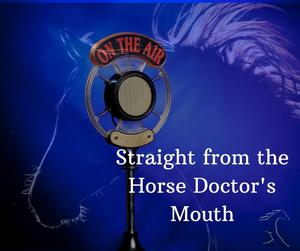 Straight from the Horse Doctor's Mouth
Straight from the Horse Doctor's Mouth
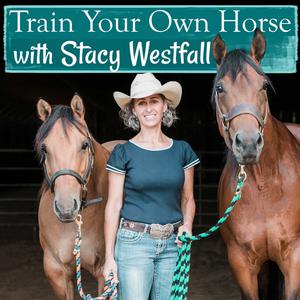 Train Your Own Horse with Stacy Westfall
Train Your Own Horse with Stacy Westfall
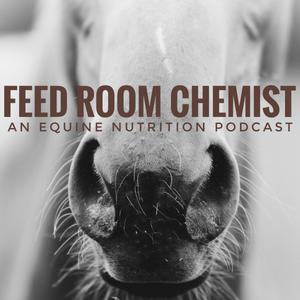 Feed Room Chemist: An Equine Nutrition Podcast
Feed Room Chemist: An Equine Nutrition Podcast
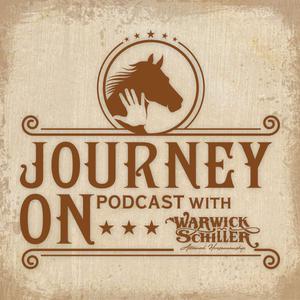 The Journey On Podcast
The Journey On Podcast
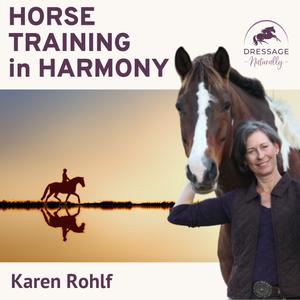 Horse Training in Harmony
Horse Training in Harmony
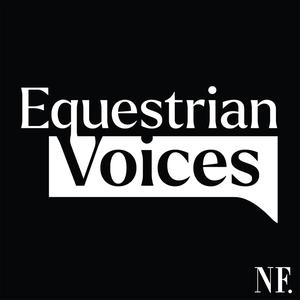 Equestrian Voices
Equestrian Voices